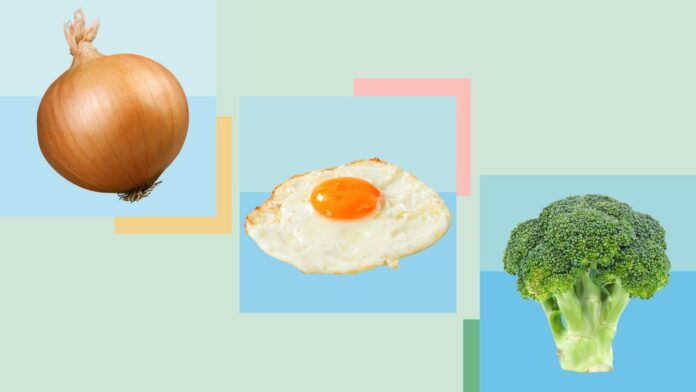Sulfur is an essential mineral often overlooked, yet it plays a vital role in numerous bodily functions. It’s involved in everything from protein synthesis and enzyme production to detoxification and joint health. While sulfur isn’t typically considered a major nutrient like vitamins or minerals like calcium, ensuring adequate intake is crucial. This article explores the foods that are naturally rich in sulfur, helping you to incorporate this vital mineral into your diet.
Why is Sulfur Important?
Before diving into food sources, understanding sulfur’s role is key. Here’s a brief overview:
- Protein Synthesis: Sulfur is a building block for several amino acids, which are essential for creating proteins.
- Enzyme Production: Many enzymes require sulfur to function properly, impacting metabolism and various chemical processes within the body.
- Detoxification: Sulfur supports the liver’s ability to detoxify the body by helping convert toxins into more easily excreted forms.
- Joint Health: Sulfur compounds contribute to cartilage formation and may help reduce inflammation, potentially benefiting joint health.
- Antioxidant Properties: Certain sulfur compounds possess antioxidant activity, protecting cells from damage.
Top Food Sources of Sulfur
While many foods contain sulfur, some are significantly richer sources than others. Here’s a look at some of the best:
- Eggs: Eggs are one of the richest and most readily available sources of sulfur. They contain a substantial amount in the form of sulfur-containing amino acids like methionine and cysteine.
- Beans and Legumes: Beans, lentils, and other legumes offer a good dose of sulfur, alongside protein and fiber. This can be relevant for individuals managing digestive sensitivities, as some may experience gas or bloating after consuming legumes.
- Cruciferous Vegetables: This family of vegetables—including broccoli, cauliflower, cabbage, kale, and Brussels sprouts—are packed with sulfur-containing compounds called glucosinolates. These compounds are broken down during cooking and digestion, releasing isothiocyanates, which have antioxidant and anti-inflammatory properties.
- Peanut Butter: A surprisingly good source of sulfur, peanut butter offers a convenient way to increase intake. Look for natural varieties with minimal additives for the greatest nutritional benefit.
- Garlic and Onions: These pungent vegetables contain sulfur compounds that contribute to their flavor and offer various health benefits.
- Pine Nuts: These nuts are a good source of sulfur and other minerals.
- Mushrooms: While the edibility of raw mushrooms requires caution (see below), cooked mushrooms are a decent source of sulfur.
- Green Foods (Spinach, Collard Greens): A variety of green leafy vegetables offer sulfur along with other essential vitamins and minerals.
- Dairy Products: Milk, cheese, and yogurt contain sulfur-containing amino acids.
Important Considerations
- Raw vs. Cooked Mushrooms: While many culinary traditions involve eating raw mushrooms, caution is advised. Some wild mushrooms can be poisonous. Even with store-bought varieties, enzymatic compounds within raw mushrooms can be difficult to digest. Cooking mushrooms breaks down these compounds and improves digestibility.
- Digestive Sensitivities: Individuals who experience digestive discomfort (e.g., bloating, gas) after consuming foods like beans, or cruciferous vegetables, may need to gradually increase their intake or try cooking methods that make them more easily digestible.
- Nutrient Synergy: The benefits of sulfur-rich foods are often amplified when combined with other nutrients. Focusing on a balanced and varied diet is crucial for overall health.
In essence, ensuring adequate sulfur intake involves incorporating a diverse range of whole foods into your diet. From eggs to cruciferous vegetables, numerous options can contribute to overall health and wellbeing.
Conclusion: Obtaining enough sulfur is achievable through a well-rounded diet focused on readily available foods. Prioritizing a variety of sources, paying attention to digestive tolerances, and understanding the nuances of food preparation can help you reap the potential benefits of this vital mineral
